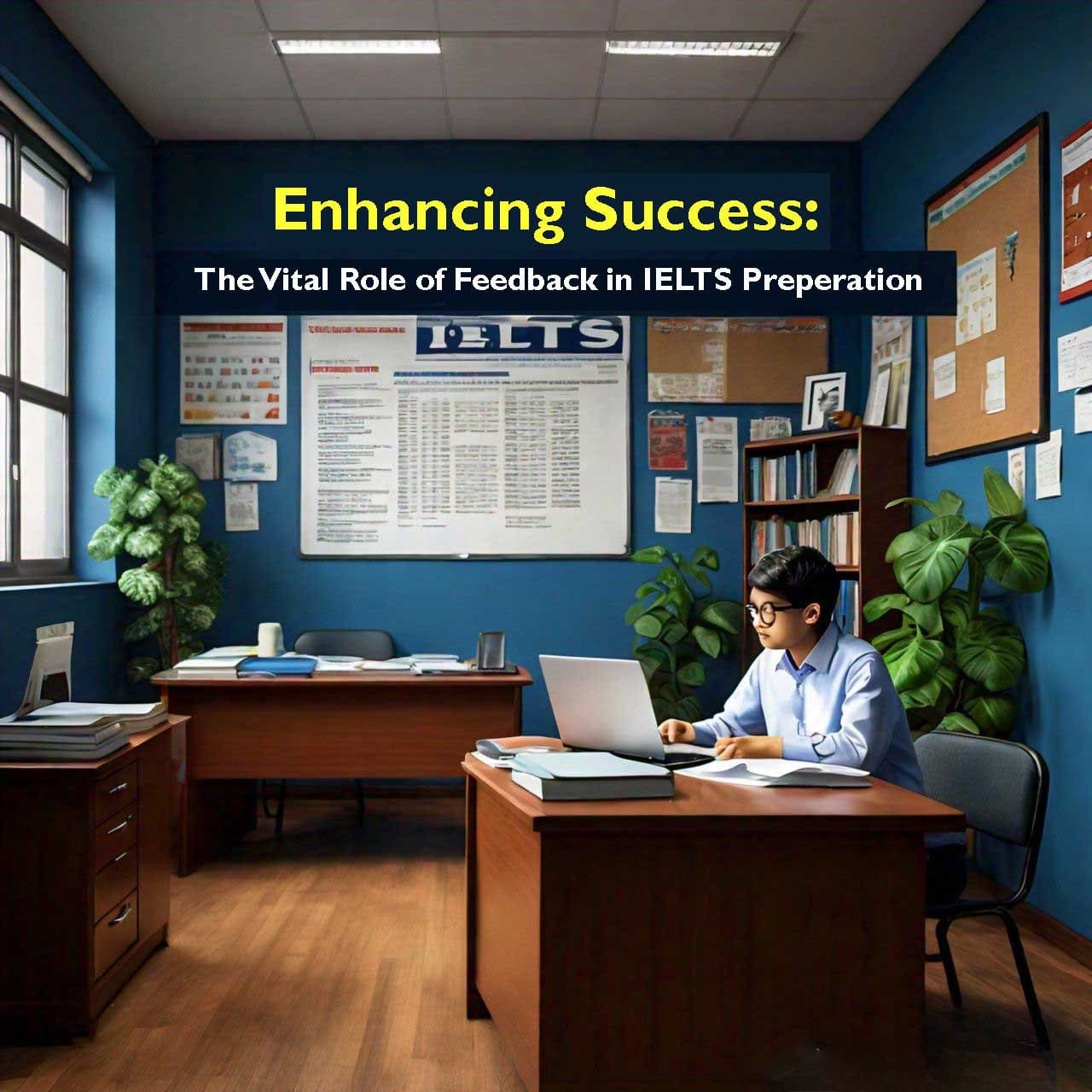Embarking on the journey to prepare for the International English Language Testing System (IELTS) can be both exhilarating and challenging. As you navigate through the intricacies of the exam, one crucial element stands out as a guiding light: feedback. Feedback plays an indispensable role in IELTS preparation, offering invaluable insights, guidance, and opportunities for improvement. In this blog post, we’ll explore the significance of feedback in IELTS preparation and how it can help you achieve your desired band score.
Table of Contents
1. Identifying Strengths and Weaknesses
One of the primary benefits of feedback is its ability to pinpoint your strengths and weaknesses in various aspects of the English language. Whether it’s your reading comprehension, writing fluency, listening skills, or speaking proficiency, receiving constructive feedback enables you to gain a clear understanding of areas where you excel and areas that require further attention. This self-awareness is essential for creating targeted study plans and focusing your efforts on areas that will yield the most significant improvement.
2. Improving Language Skills
Feedback serves as a catalyst for language skill enhancement by providing specific recommendations, corrections, and suggestions for improvement. Whether you’re practicing writing essays, delivering spoken responses, or completing listening exercises, feedback helps you identify grammatical errors, vocabulary deficiencies, pronunciation issues, and other linguistic nuances that may impede your communication. By incorporating feedback into your practice sessions, you can gradually refine your language skills and become more proficient in English.
3. Enhancing Exam Strategies
In addition to language skills, feedback also plays a crucial role in refining your exam strategies and techniques. Whether it’s tackling different question types, managing time effectively, or structuring your responses coherently, feedback from instructors, tutors, or peers can provide valuable insights into effective test-taking strategies. By analyzing feedback from practice tests, mock exams, or speaking sessions, you can identify areas where you can optimize your approach and maximize your performance on the actual exam day.
4. Boosting Confidence and Motivation
Receiving positive feedback and constructive criticism can significantly impact your confidence and motivation levels during the IELTS preparation process. Positive feedback reinforces your strengths and achievements, instilling a sense of confidence in your abilities and boosting your morale. On the other hand, constructive criticism provides you with actionable insights for improvement, motivating you to overcome challenges and strive for excellence. Both types of feedback work synergistically to keep you inspired, engaged, and focused on your goals.
5. Cultivating a Growth Mindset
Lastly, feedback cultivates a growth mindset, emphasizing the belief that intelligence and abilities can be developed through dedication and effort. Instead of viewing mistakes as failures, feedback encourages you to perceive them as opportunities for growth and learning. By embracing feedback with an open mind and a willingness to learn from both successes and setbacks, you cultivate resilience, adaptability, and a continuous improvement mindset that propels you towards success in your IELTS journey and beyond.
Conclusion
In conclusion, feedback is an indispensable component of IELTS preparation, providing you with valuable insights, guidance, and motivation to excel in the exam. Whether it’s identifying strengths and weaknesses, improving language skills, enhancing exam strategies, boosting confidence, or cultivating a growth mindset, feedback serves as a catalyst for progress and success. By actively seeking and incorporating feedback into your study routine, you can elevate your preparation efforts, overcome challenges, and achieve your desired band score in the IELTS exam.

